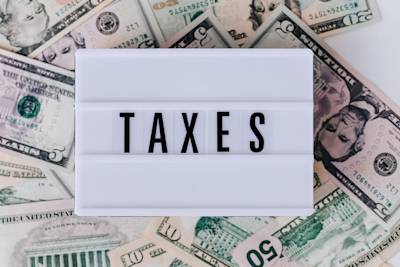
The Real Estate Agent's Guide to Creating a Realistic Budget
Our Best Budgeting Advice for New Real Estate Agents

Our Best Budgeting Advice for New Real Estate Agents

Jacqueline Kyo Thomas
When you go into business as a real estate agent, your earning potential is only limited by your hustle. A career in real estate brings boundless freedom and potentiality, but it doesn’t bring a steady paycheck. Because your income will be unpredictable, it’s essential that you make and stick to a budget. Otherwise, you’ll feast one day and starve the next.
In this post, we share tips on how to create a realistic budget for your first year as a real estate agent.

If possible, create a budget before you start your career in real estate. This will set your business up for success and ensure that your necessary bills are anticipated and covered.
First, calculate your start-up expenses. While you don’t need to invest in a four-year degree to become a real estate agent, you will need to spend some money in the process. Here are the most common first year expenses for a new real estate agent:
The good news is that many of the above expenses are tax deductible. However, you’ll still need to pay for them out of pocket. You’ll need to prepare for those expenses beforehand so that you’re not gut punched. Expect to invest at least $5,000 into your career in your first year. But fortunately not all at once!
Along with your initial startup expenses, you’ll need money to support yourself as your career takes off.
Who knows when your first commission check will arrive? It may be next month, but it’s likely to be three to six months from now. You’ll need to depend on two things while waiting for your commission check to make it home:
Work out your basic expenses, such as rent, car note, utilities, food, etc. Eliminate the fluff, such as entertainment. Then total up how much you need to survive each month, and that’s your total to save.
What happens if your car breaks down or your cell phone goes on the blink? You need money to replace that, but you can’t borrow from your basic savings (because there’s not much to spare).
This is why, if possible, you should try to build an emergency fund. Save for the inevitable rainy day that’s coming. We hope the rainy day happens after you’ve started making money from your real estate business, but no one can predict emergencies.
Whatever you do, try to avoid borrowing from your credit cards, because that’ll lead further into debt.
Instead, save up at least $500 dollars for your emergency fund. (This is in addition to your three-to-six month savings).
I get it… saving thousands of dollars before starting your real estate career is a difficult task for anyone. What if you want to get into your real estate career now and not after you’ve saved enough to be able to support yourself?
There is an alternative: Work part-time.
A lot of new agents hop into real estate on a part-time basis. This can fast-track your career and enable you to start selling real estate.
But working part time has drawbacks.
First, you’re more vulnerable to burnout if you’re working two jobs at once. When will you have time for yourself or your friends and family?
Second, working part time automatically slows your progress. It will take a longer time to build a self-sustaining business if you’re giving it less than 35 hours a week.
Third, working part time reduces your flexibility. You won’t be able to show as many homes or respond to calls as quickly if you’re on another job.
Working real estate part time should only be a temporary solution that allows you to build up your savings.
To make it easier to track your income and monitor your expenses, create two separate accounts: One for business and one for personal. This will also help you when it comes time to pay your taxes (more on that later). Remember that your real estate business is an independent entity, and should be treated as such.
In your first year of real estate, it’s okay not to buy designer suits. As long as you’re freshly showered, well groomed, and confident, no one will notice that you’re not wearing a name brand. The time to buy expensive clothes will come later when you can afford it through your real estate business earnings. But until that time, don’t fret.
Clients don’t buy your appearance, they buy your attitude.
Pay yourself a set salary. This is one of the smartest budgeting practices you can do, especially if you’ve already separated your business and personal accounts.
This ensures that you’re not constantly dabbling into your business account to take care of this bill or that, which defeats the purpose of having two separate accounts.
Paying yourself a salary also helps you maintain a consistent budget. Of course, you won’t have a salary until you start receiving a commission, but it’s a good idea to plan ahead for it. Determine how much you’d like to earn from your business (be realistic). Then, whatever you earn above that amount can be invested back into your business or go towards general, retirement, or emergency savings.
It’s never too early to plan for retirement. Because real estate is a career that you can do at any age, you may think that you’ll never need to retire. But sometimes, you may be forced to retire, especially if you have a health or family issue in your golden years. It’s always important to be prepared.
Start contributing to a Roth IRA or solo 401(k) so that you have something in the future to draw upon. This is something to include in your monthly budget.

Remember that, even though you may be working under a broker, you’re still considered an independent contractor. So, when you work for yourself, you’re also responsible for paying all of your own taxes. This covers income tax and self-employment taxes (which includes Social Security and Medicare).
The first thing you should do with every commission check is to take out taxes. Set aside between 25% to 35% of every commission for taxes. You may not be required to pay that entire amount but it’s better to save more than not enough.
A CPA (certified public accountant) isn't just for tax time. Work with a CPA throughout the year to ensure that you're making smart choices with your money. You can hire an accountant to save some money, but bear in mind that an accountant who’s not certified by the state cannot represent you before the IRS. This is a service you’ll definitely need as you start to earn more money, so it’s usually best to work with one trusted accounting professional for all of your business’ financial needs.
Here’s what you need to budget for:
The above tips will help you build a dependable budget, even with an inconsistent income. Financial consistency will eventually come as you hit your rhythm and generate more referrals, but even then, you’ll still need a budget to stay solvent.
Before you go, check out these related posts: